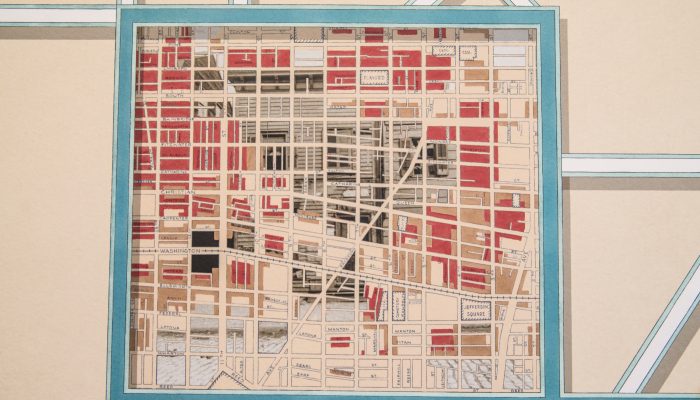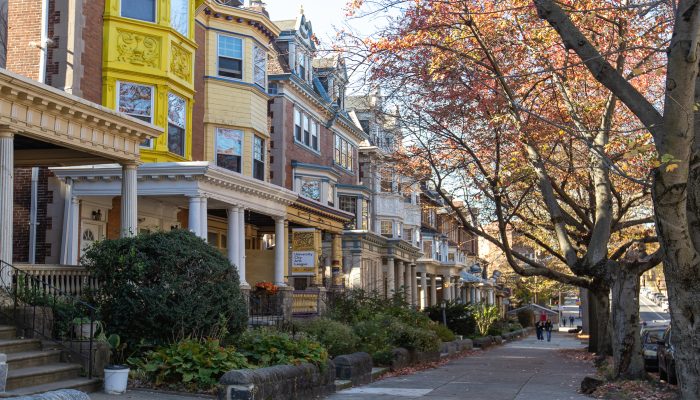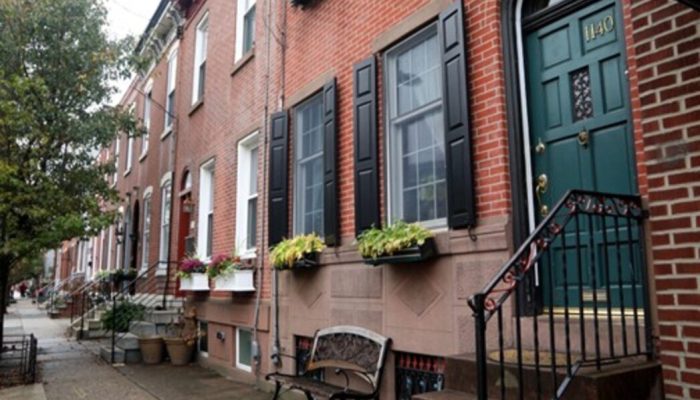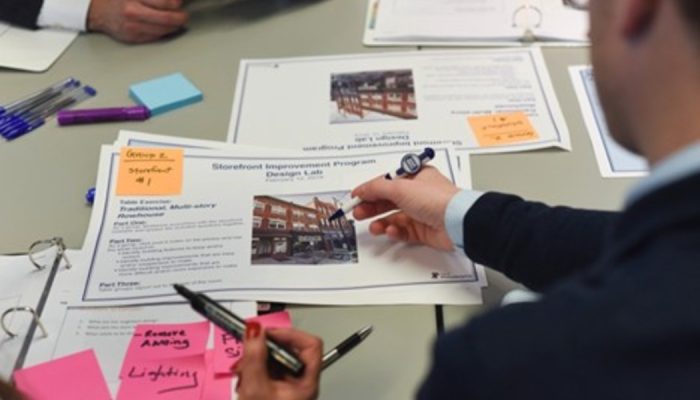Every year, between two and three thousand Philadelphians visit the City Archives. Now open in its new location at the corner of 6th and Spring Garden streets, the new facility is even more accessible than ever before.
The City Archives holds records that include deeds, court documents, letters and correspondence, and other City files that help members of the public, researchers, genealogists, students, journalists, and academics learn about Philadelphia’s history.
There’s also a permanent work of art, “Charting a Path to Resistance,” by local artist Talia Greene, commissioned through the City’s Percent for Art Program.
The interactive mural exposes the racism and discrimination of our collective past as Philadelphians, taking its inspiration from historic maps and documents in the Archives. You can scan documents along the exhibit to hear stories of housing discrimination through the 1960s. And as you move through the foyer and into the reading room, you move back in time, with stories of resistance to housing discrimination transitioning to stories of resistance to slavery. You can download the accompanying, interactive “Resistance: Philadelphia” app for iPhones and Androids for free.
To visit the Archives, you simply show up at 548 Spring Garden Street during normal business hours, 9 a.m. to 4:30 p.m., Monday through Friday. You can ask an archivist for assistance obtaining the records you need, and they’ll even walk you through projects if you’re not sure where to begin.
One of those archivists might be David Baugh.
The Fairmount resident has been working at the City Archives since 2001. He answered a few questions about what you can expect when you visit the City Archives.
What does an archivist do? Does it involve dusty books?
We preserve the past and make it available to the public. While that usually does entail keeping a large number of rather old and dusty books, the City Archives also contains historic films and photographs, original birth and death certificates, and, now, original artwork!
If someone needs help with records, how do they start that?
If they’re able to visit the Archives at 6th and Spring Garden, we can help them get started! If we don’t have the material here, we have suggestions on where to look next. If researchers are unable to drop by, they can always submit research requests through email at records.info@phila.gov or regular mail.
If you could give any advice to budding historians or new researchers visiting the City Archives, what would it be?
The best way to get started is to come prepared. The more you know about your subject, the better. Try not to be intimidated by the volume of what’s available, and don’t hesitate to ask questions. We’re happy to help!
What kind of records do people typically look up and why?
Most of our patrons are genealogists curious about their ancestors. They tend to look at our birth, marriage, death, and naturalization records. A few of the genealogists along with a host of others including real estate lawyers and people in the historic preservation field also look at our deeds, building permits, and maps to get a better grip on the history of a particular property or, occasionally, an entire city block!
Sometimes, people are simply curious about the history of a property that they or their ancestors purchased. Others may need to look at old land records for insurance or historic preservation purposes.
Then we have researchers, usually professors or grad students, who consult records of City entities like the Mayor’s Office and City Planning Commission to gather material for a paper or publication.
We also have the occasional ghost hunter on a quest to discover who’s haunting a particular property, but their visits to the Archives are few and far between!




